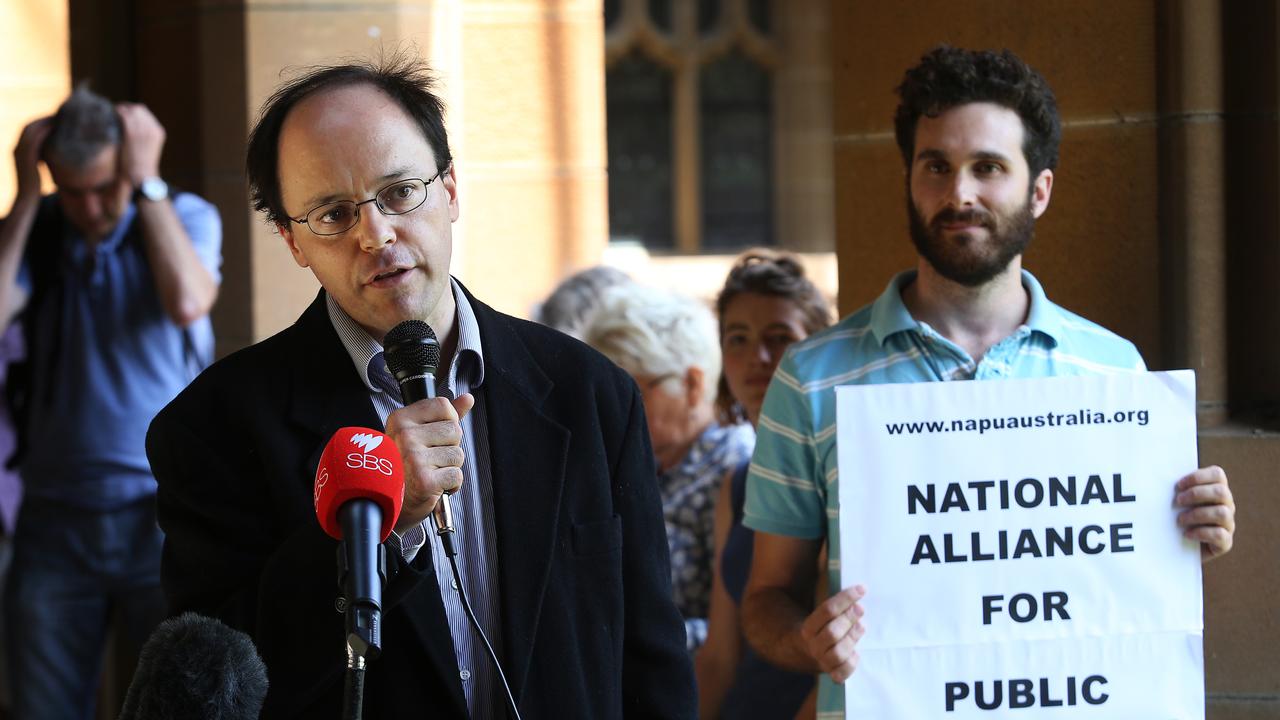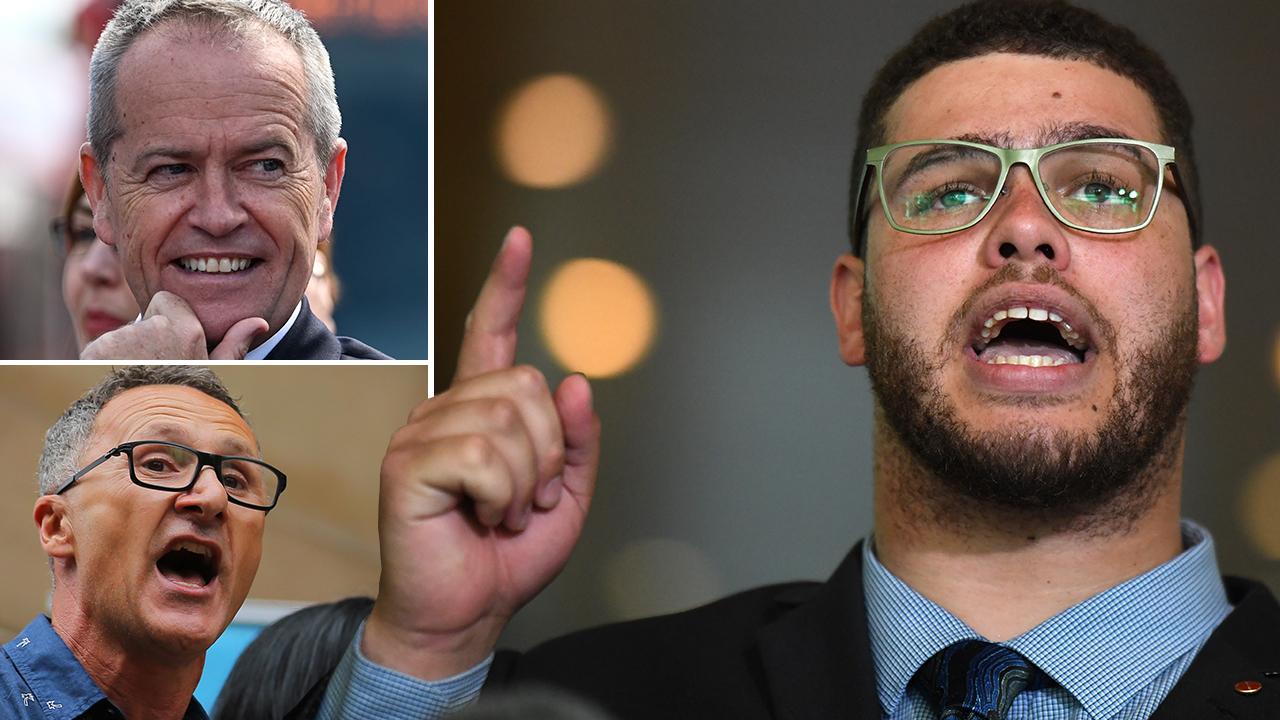
If the publisher’s advertising blurb is to be believed, An Activist Life by former Greens leader Christine Milne is a harrowing tale.
“This is a fascinating insider’s account of what it means to be a woman in politics, the sacrifices of family life and relationships, (and) the relentless misogyny that must be endured ...”
Having a keen interest in biographies of the “how-I-have-suffered” genre, I decided to attend the book launch at Old Parliament House in Canberra on Tuesday.
As a middle-age cisgender white male, I felt strongly this would be an important learning exercise for me. I constantly hear from people such as Greens politicians that I should be more conscious of my privilege. What better way than to do this than to move outside my circle and mix among the wretched and the downtrodden, whom the Greens champion?
I had no doubt the composition of the audience would reflect this diversity. “Give me your tired, your poor,” I thought to myself in anticipation of the occasion, “Your huddled masses yearning to breathe free.”

Alas, my hopes of effusively quoting Emma Lazarus disappeared as I looked around the crowd of 70-odd people. With the exception of an Asian lady and an indigenous woman all my fellow audience members appeared to be white people, and well-dressed ones at that. How dreadfully vanilla, you might quip.
Our host was Gillian Triggs, emeritus professor and former president of the Australian Human Rights Commission. This was the second time she has spoken at a function for a former Greens leader, but unlike the previous occasion she was doing it in a private capacity.
“We don’t know each other very well,” began Triggs, but added they shared some traits. For example, she and Milne had been brought up in the Catholic education system. “Nuns abhor any self-pity in the force of adversity,” she added.
This was the same Triggs who only in May told an audience at the Melbourne Town Hall: “I am coming to the view that they have been able to say things about me, and attack me, in a way that never would have happened to a man. And I am sorry to say that, but it’s true.’’ Clearly the nuns did a lousy job in instilling that lesson. Sadly, her outlook has not improved in the post-Triggs environment. “We now live in a post-truth environment,” she declared, which has given rise to “alternative facts”.
Post-truth? That is the so-called intelligentsia’s tedious, lazy, and value-laden cliche. It is a comfort teddy for those sniffling children triggered by events such as Brexit and the election of Donald Trump.
What have these defenders of truth been doing all these years to protect the humanities from the insidious advance of postmodernism? Where were the arguments for objective facts when schools of moral and cultural relativism took hold of the tertiary institutions? Did Triggs and her ilk object on the grounds that “facts are sacred” when people were summonsed before courts and tribunals to answer accusations of so-called “hate speech”?
As for Triggs, since when was she the guardian of facts? How many contradictory answers did she give in response to Senate committee questions over her reasons for delaying the children in detention inquiry, and whether she had discussed it with Labor ministers? What about when she blamed the Saturday Paper for taking her out of context and attributing expressions to her that she denied saying? Only upon learning that the journalist had taped the interview did she offer to “clarify” her evidence to the Senate committee and accept that the paper’s account of her interview was accurate.
In June, Triggs, in her final weeks as AHRC president, gave an outgoing interview to a sympathetic Fairfax journalist which unfairly maligned the integrity of The Australian’s associate editor Chris Kenny. “He keeps swirling the same facts over and over again and they are not true for a start — and that’s all he’s got,” Triggs reportedly claimed. “I’ve never met him. He’s never phoned me or made any attempt to understand anything. It’s just been a full-on attack.”
This was incorrect. As Kenny detailed, he made many attempts during Triggs’s tenure to interview her, yet never once did she accept his offer. It was not a case of Triggs being shy of media attention; in fact, she appeared to relish giving interviews to left-of-centre outlets. Yet here she was this week deploring the apparent “move away from a principal belief on facts and evidence-based expert opinion”. Could this instead be the dissonance caused by stepping outside one’s echo chamber for the first time?
Never mind Triggs, I thought, perhaps if I sit close to the front I could catch a few of Milne’s pearls of wisdom. Instead I heard the usual shibboleths. “Minority government,” she said enthusiastically, “is democracy in action”. Conversely “majority government is corruption”. How does one reconcile those two assertions?
And naturally, Milne made special mention of News Corp, which she described as “an associated entity of the Liberal Party, together with the IPA”.
Milne did make one interesting point, and that concerned the rise of the professional politician from the ranks of political staffers. They “never actually (had) stood for anything,” she said, and “never had any life experience”.
Surely she wasn’t referring to her fellow Greens senator Sarah Hanson-Young, who was a political media adviser before being elected at 25? In 2015 it was revealed that Hanson-Young, who had unsuccessfully challenged Milne for the deputy leader’s position in 2010, said the party was “marching to a slow death” under her leadership.
“What’s your view, as I see it,” asked Triggs, “of the regressive position of women in politics?” Milne agreed with this leading question, but pointed out that an increase in female politicians was meaningless if they did not advance women’s issues. Former PM Julia Gillard’s ‘misogyny speech’ “didn’t impress me that much”, she said, given that her government that day had put through legislation cutting the allowances to single parents, which disproportionately affected women. And former Greens leader Bob Brown, said Milne, was “a far greater feminist” than former Liberal senator Bronwyn Bishop.
On the subjects of female politicians and misogyny, you would be familiar with the despicable attack last week on City of Sydney councillor and NSW upper house aspirant Christine Forster, who was attending a fundraiser for her brother Tony Abbott. She was attacked by protesters who tore her jacket as well as attempted to hit her and spit on her. This demonstration had been organised by Refugee Action Coalition Sydney. Which party do you think it likely its members voted for?
I waited for this particular example of a regressive position of a woman in politics to be raised, but it was not. How odd. What would be the reaction, you might wonder, if Forster — a confident and courageous activist for same-sex marriage — had been attacked by conservative protesters?
You also might ask what the various feminist commentators have done in respect to that attack, especially given men are among those who tried to rationalise it. “Forster is a Liberal,” tweeted former journalism academic and member of the Canberra Press Gallery Martin Hirst, “and she was attending the function with a) her homophobic brother and b) the minister for torturing refugees. She is one of them.”
Where is the outrage from those such as Van Badham, Anne Summers, and Clementine Ford? What have we heard from Jane Caro, Jenna Price and their Destroy the Joint movement?
It is no doubt similar to the old Senate chambers where I was sitting. The acoustics work fine, but it’s too much of an echo chamber for my liking.




To join the conversation, please log in. Don't have an account? Register
Join the conversation, you are commenting as Logout